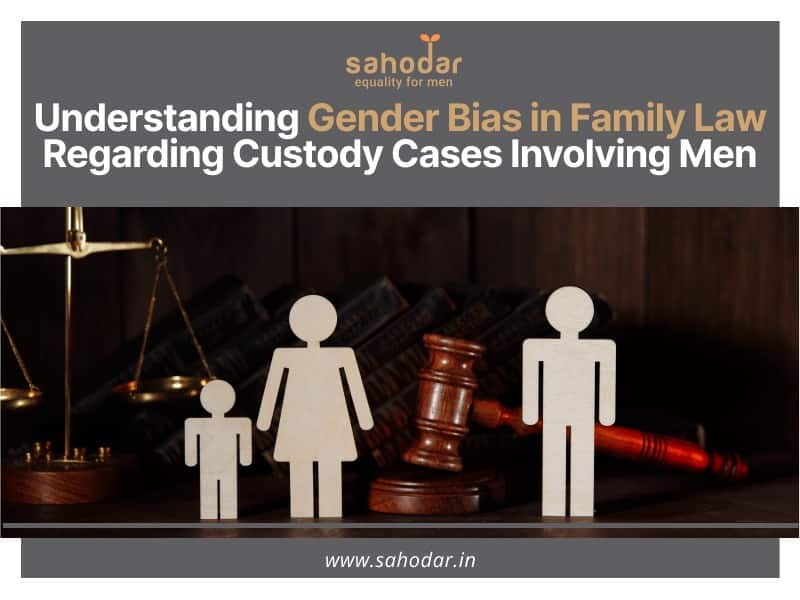Family law constitutes a vital domain of legal jurisprudence, entrusted with the governance of familial relationships, dissolution of marriages, and the protection of the rights and welfare of minors in the context of divorce or separation proceedings. However, notwithstanding the substantial strides made towards gender equality, a pervasive and entrenched bias persists within the family law system, resulting in a disparate treatment of men in custodial disputes, raising salient legal and constitutional issues.
Historically, entrenched societal norms have lent preferential treatment to the presumption that maternal figures inherently possess superior caregiving aptitude, relegating paternal roles to primarily financial providers. This deeply ingrained bias has permeated the family law framework, thereby engendering an adverse environment for fathers seeking custodial rights. Custodial determinations often predicate upon an underlying assumption that maternal guardians are innately more proficient at child-rearing, perpetuating gender-based stereotypes, and encroaching upon the fundamental rights of fathers as parents under the law.
Several legal factors contribute to the perpetuation of this discriminatory treatment. Gender roles and stereotypes exert a pervasive influence in this context. Many family courts persist in adhering to outdated and legally inadmissible beliefs, erroneously positing that fathers are less capable of furnishing emotional sustenance and stability to their offspring compared to mothers. This perspective is incongruent with the principles enshrined within the Equal Protection Clause of the Fourteenth Amendment, infringing upon fathers’ rights under the law and their equal protection.
Furthermore, a significant legal issue pertains to the continued influence of the ‘tender years’ doctrine, which posits that young children should primarily reside with their mothers. This doctrine has been widely discredited in contemporary legal scholarship and contravenes the principles of equal protection under the law. Nevertheless, its lingering impact upon custodial adjudications has raised constitutional concerns and spurred legal debates regarding the necessity for its unequivocal repudiation within the family law system.
The prevalence of false allegations and their legal implications further complicate custodial disputes. Parties involved in such disputes sometimes resort to fabricating allegations of abuse or neglect against fathers with the objective of gaining a strategic advantage in legal proceedings. Such actions raise issues of perjury, defamation, and the adverse effects on a father’s legal standing, prompting considerations of legal remedies and protections against such practices.
The legal ramifications of the bias against men in custodial proceedings are profound, encompassing violations of fundamental due process rights and equal protection under the law. Devoted fathers are confronted with formidable legal obstacles in substantiating their suitability as custodial parents, necessitating legal redress to rectify this systemic imbalance.
The legal implications are further underscored by the impact on minors. Denying children access to their fathers implicates their rights to maintain meaningful associations with both parents, a principle well-established in family law jurisprudence. Legal remedies to safeguard the best interests of minors are integral to addressing this systemic bias.
Efforts to address these legal issues are currently underway, spearheaded by various legal advocacy organizations and constitutional scholars. These efforts seek to promote gender-neutral legislation, the legal abandonment of discriminatory presumptions regarding parental roles, and the enactment of legal safeguards to protect the due process and equal protection rights of fathers.
Legal professionals and family court adjudicators play a pivotal role in rectifying this legal imbalance. Training programs, ethics guidelines, and awareness campaigns can mitigate unconscious biases and stereotypes that impact decision-making processes. Ensuring equal opportunities for both parents to present their cases in court is essential to upholding the legal rights and protections enshrined in our legal system.


I read this post your post so nice and very informative post thanks for sharing this post
Thanks for the appreciation.